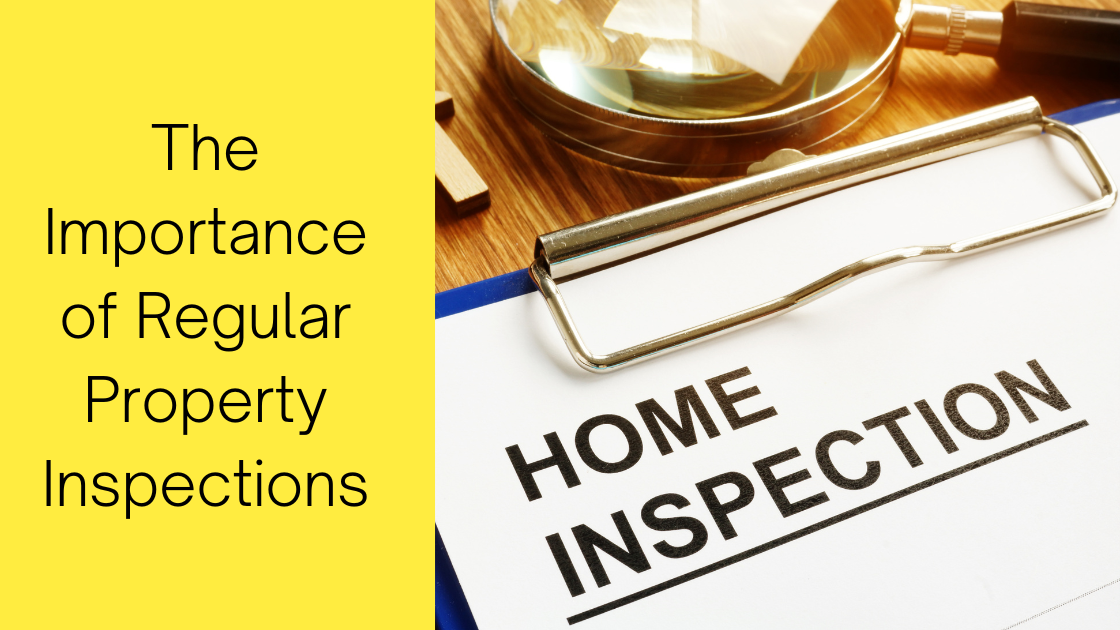
For landlords, the journey through real estate management is more than just aiming to earn rental income; it's about safeguarding the future of their investment properties and ensuring the well-being of their tenants.
To ensure this happens, the practice of regular property inspections should be taken seriously. This should be a proactive measure that not only prevents the deterioration of the property but also fortifies its value and desirability in the competitive rental market. Keep reading this article to learn more!
Benefits of Regular Property Inspections
Here are the major benefits of performing regular property inspections:
Preventing Minor Issues from Becoming Major Problems
Regular property inspections are crucial in identifying and addressing minor maintenance issues before they escalate into significant problems.
For instance, a small leak under the sink, if left unchecked, can lead to extensive water damage, mold growth, and structural issues, all of which could be costly to repair.
By conducting periodic inspections, landlords can detect such issues early on, ensuring timely repairs that ultimately save money and preserve the property's condition.
Enhancing Tenant-Landlord Relationships
While the primary focus of property inspections might seem to be on the physical state of the property, they also offer a valuable avenue for building positive landlord-tenant relationships.
Regular, scheduled inspections, conducted with proper notice and respect for tenant privacy, demonstrate the landlord's commitment to maintaining a safe and well-kept living environment.

Legal Compliance and Liability Reduction
Landlords are bound by various local and state regulations that mandate property standards, especially concerning safety and habitability.
Regular inspections allow landlords to ensure their properties meet these legal requirements, thereby reducing the risk of legal disputes with tenants or penalties from authorities.
By documenting the property's condition and the steps taken to address any issues, landlords can protect themselves against potential liability claims, should accidents or injuries occur on the property.
Different Kinds of Inspections
Regular property inspections can be broadly categorized into three main types: move-in inspections, inspections during tenancy, and move-out inspections.
Each serves a unique purpose and plays a crucial role in the life cycle of tenancy, ensuring both landlords and tenants fulfill their respective obligations.
Move-In Inspections
A tenancy begins with the move-in inspection, a critical step that sets the baseline for the property's condition at the start of a new tenancy. This inspection is typically conducted with the tenant present and involves a detailed walkthrough of the property.
Together, the landlord and tenant document the current state of each room, including walls, flooring, fixtures, and appliances, noting any existing damages or issues.
This thorough documentation, often supported by photographic evidence, serves as a reference point for future inspections and helps prevent disputes over security deposits at the end of the tenancy.
By establishing a clear record of the property's condition, both parties can enter the tenancy agreement with transparency and mutual understanding.

Inspections During Tenancy
Ongoing inspections during tenancy are vital for monitoring the property's condition and ensuring compliance with the lease agreement. These periodic checks, typically conducted annually or bi-annually, allow landlords to identify and address maintenance issues before they escalate, ensuring the property remains safe and habitable.
Furthermore, these inspections provide an opportunity to assess how well tenants are maintaining the property and adhering to lease terms, such as restrictions on smoking, pets, or unauthorized alterations.
Conducting these inspections with a spirit of cooperation and open communication can strengthen the landlord-tenant relationship, encouraging tenants to take good care of the property and report any issues proactively.
Move-Out Inspections
The move-out inspection marks the end of the tenancy and is as crucial as the move-in inspection. This final walkthrough, ideally conducted with the tenant present, compares the property's current condition to its state at the beginning of the tenancy, as documented during the move-in inspection.
The focus is on identifying any damage or alterations that exceed normal wear and tear, which could impact the return of the tenant's security deposit. This inspection provides a clear and fair basis for any deductions from the deposit for repairs or cleaning, ensuring both parties have a mutual understanding of any costs incurred and the reasons behind them.

Strategies for Effective Property Inspections
To reap the benefits of regular property inspections, landlords should adopt a systematic and respectful approach. Establishing a clear inspection schedule, ideally outlined in the lease agreement, ensures both the landlord and tenant are aware of and agree to the inspection frequency.
It's also crucial to provide tenants with adequate notice before each inspection, respecting their privacy and adhering to legal requirements.
During inspections, landlords should be thorough yet efficient, checking for maintenance issues, compliance with lease terms, and any unauthorized changes to the property.
It's also an opportunity to discuss any concerns the tenants may have and to show appreciation for their efforts in maintaining the property.
Following each inspection, documenting the findings and any agreements made with the tenants is essential. This documentation can serve as a reference for future inspections and as evidence in case of disputes.
Conclusion
Regular property inspections are important for effective property management, offering plenty of benefits from preserving the property's condition to enhancing tenant relationships and ensuring legal compliance.
By embracing a proactive and structured approach to inspections, landlords can protect their investment, maximize its value, and foster a positive and professional relationship with their tenants. When in doubt, consult with a professional property manager to help you with this aspect. Contact Mark Thomas Properties PM and we’ll be happy to serve you!
